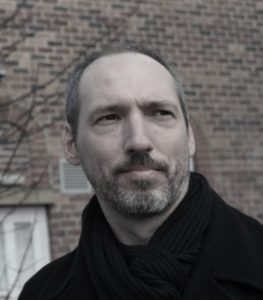What is it that draws us towards crime fiction and noir, in particular? I can still remember the first crime novel I ever read. It was Henning Mankell’s first Wallander book, Faceless Killers. It wasn’t overly long. The characters were believable, the scenario realistic. I could place myself in Skåne, see the rolling fields in my mind’s eye and set the scene of a Swedish city street. Not that I had ever been to Sweden. Any number of skilful writers can set a scene and transport the reader to it. It’s what we do, draw people into a story. However, there was more than that.
What is it about the crime genre that is so appealing to us as readers and indeed, as writers? I would argue that for some, they are fascinated by the horror of humanity. The darkness in which some people are capable of living in, is compelling. For me, analysing the psyche of a serial killer, what drives them, what creates them, what torments them, is a study in the most intriguing actions that a human being is capable of. That’s not to be confused with admiration, far from it.
We live in a world where people will carry out horrific attacks on strangers, their neighbours, friends and even their family. How many times do we hear a news bite with an acquaintance saying ‘he was a great guy’ or ‘he was always willing to help someone out’. If the perpetrator is unknown you tend to hear ‘this is a quiet street’ or ‘I can’t believe it happened here’. In the former there is often disbelief that the person could commit such a heinous act and with the latter, the reporting will often lean towards an exterior explanation. That is to say, it was done by another, from outside this community. Perhaps a drifter, a foreigner, certainly not one of us.
Frighteningly, ninety percent of murder cases are what law enforcement call ‘self-solvers’. The victim is more often than not linked to the killer, either through work, friendship or family. In many cases, it is a domestic situation. The reason that many of us find these cases to be so shocking is quite simply because the demons who carry out these horrendous murders are no different to us, they are us. Or at least, they will give the appearance of being so. One of the consistent factors criminologists note is a psychopath’s ability to ‘mirror’ those people around them. Often, they will live in a community for years, perhaps volunteer on the PTA, be the guy who will help you fix your decking on a Saturday afternoon or share a beer across the garden fence, of an evening. John Wayne Gacy worked as a clown, entertaining children, and he managed to kill at least 33 people before he was apprehended. He didn’t live in the woods, secluded from society. He lived in a nondescript suburban house, alongside neighbours who never had a clue. Fred and Rosemary West lived in a terraced house in Gloucester. Over the course of two decades they tortured, killed and disposed of young women until they were finally arrested. The national shock and outrage were understandably intense. How did these people manage it? The image they presented to the world around them was one of normality.
Is it this sinister side to the human mind that attracts us to these stories? The subject matter is almost taboo. It makes us uncomfortable. It forces us to address that which we fear the most, what we are capable of. In almost every case I have examined, which in the course of my research is a great deal, there is usually one period in the killer’s life, perhaps several, where we can see how such a depraved mind could have been fostered. Be that a traumatic childhood, abusive, emotional, coupled with later experiences that they were never able to process. Others, perhaps demonstrated sociopathic tendencies from a very early age, torturing of animals in childhood, or adulthood for that matter, being a significant red flag. I must qualify this and state that many people have traumatic childhoods and don’t grow up to murder fellow citizens. However, the question about whether or not someone is born a killer or develops that way, nature or nurture, is still hotly debated. Personally, I think it’s a little of both.
The fact that we still don’t understand what drives these people is part of the fascination. Many of us enjoy a roller-coaster ride or a trip to the cinema to see a horror film. They stimulate the same senses as crime noir… fear… trepidation, the heightening of our senses. In Crime Noir, the ending is usually bittersweet. Arguably this is another reflection of the world in which we live. However, part of the appeal may well be that the greater evil in our fiction seldom succeeds in the longer term. Perhaps, just perhaps, we like the reassurance that comes with the ending of the fictional story, the monsters are either caged or destroyed…
